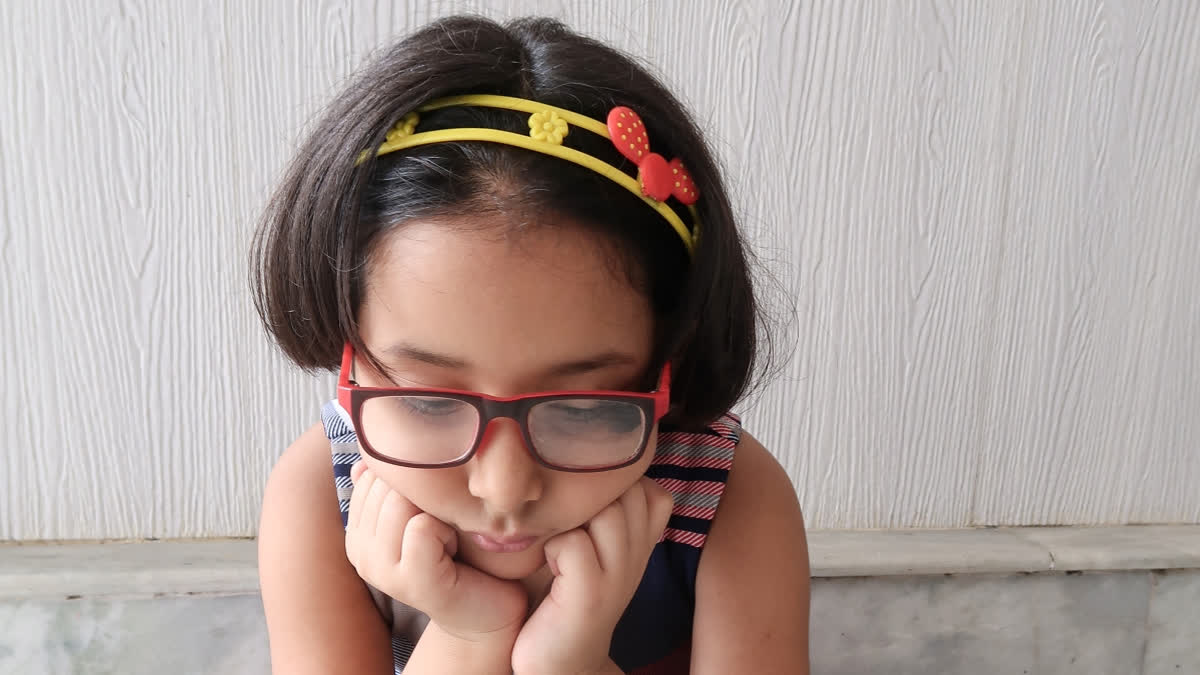Hyderabad: The Global Developmental Delay Awareness Day is observed on May 1. This term describes a condition occurring during the developmental period of a child's life - from birth to 18 years old.
It is characterised by lower intellectual functioning, limitations in communication, self-care, home living, academic skills, leisure, health and safety. GDD has various causes linked with the functioning of the central nervous system, such as trauma to the central nervous system, Fetal Alcohol Syndrome, genetic disorders, metabolic disorders, etc.
Everyone is encouraged to post a picture of themselves wearing something yellow and explain why to raise awareness of an invisible disability.
What is Global Development Delay? Global developmental delay describes the condition in which children are significantly delayed in all areas of development. Babies and children usually develop certain skills and abilities at fairly predictable ages. While all children grow at different rates, the difference for children with global developmental delay is that they often don't develop these skills until a much later age than expected.
Common Signs and Symptoms of Global Development Delay:
There are lots of different signs that children may be facing Global Development Delay, and they may vary depending on specific characteristics of children.
Some signs are noticeable when children are babies, but others may not become as obvious until children reach school age.
Common signs of Global Development Delay include:
- Learning and developing at a slower pace than other children of their age
- Meeting physical milestones like rolling over, sitting up, crawling and walking at a later stage
- Having trouble communicating and socialising with other people
- Having trouble remembering things
- Struggling with problem-solving skills
- Falling behind at school
- Needing help with everyday tasks such as getting dressed
What are the types of GDD?
There are four types of development delays in children:
Cognitive delay: Cognitive delays refers to an impairment in a child's intellectual functioning and overall awareness of his/her surroundings. Children with cognitive delays face difficulty in learning new subjects. Such children also find it difficult to communicate and play with other children of their age.
Motor delay: The child's ability to coordinate the various muscles in their body, such as arms, legs, and hands, determines a child's motor skills. Infants with motor delays often find it difficult to roll over or crawl. Affected children may find it difficult to walk up and down the stairs. Children with fine motor delays will find difficulty in holding toys, objects and performing actions such as brushing their teeth or tying their shoes.
Social, Behavioral and Emotional delay: Children with neurobehavioral disorders and development delays tend to have social, emotional and behavioral issues. Children with this condition usually take longer for their brains to fully develop, and as a result, such children may seem like they are lagging behind their peers in terms of learning ability and social interactions.
Speech delay: A speech disorder which affects children who have an oral motor condition that interferes with speech, such as weakness in the mouth muscles or trouble moving the tongue or jaw. Physiological causes such as brain damage and genetic syndromes are known reasons for this delay in speech.
Causes of Global Development Delay:
There are numerous ways that Global Development Delay diagnoses can be caused. Often, it is the result of genetic factors, such as down’s syndrome or other problems with a child’s chromosomes. In other cases, the condition could be the result of problems with a child’s brain or spinal cord. As well as this, premature birth and childhood illnesses can be a contributing part. It is fairly common, however, that no discernible cause is found.
Therapies for Developmental Delays:
Although there is no cure for developmental delay, therapies directed to the specific area of delay are very effective in helping children catch up to their peers. These types of therapies may include:
Physical Therapy: Physical therapy is often helpful for children with delays in gross motor skills.
Occupational Therapy: This can addresses fine motor skills, sensory processing and self-help issues.
Speech and Language Therapy: Speech therapy is typically used to address problems in the areas of understanding and producing language and speech sounds.
Early Childhood Special Education: Early childhood special education provides stimulation for early developmental skills, including play skills.
Behavioral therapy: This may be needed in some children for behavioral difficulties that affect socially appropriate behaviors.
Can this be prevented?: Scientists don't always know why developmental delays happen, so you can't always prevent them. It’s important to avoid toxins during your pregnancy and go to all of your prenatal appointments. The best way to prevent long-term developmental delays is early intervention. Research has shown that early intervention services for babies and children up to 3 years of age can minimise and often prevent the long-term effects of developmental delays.



